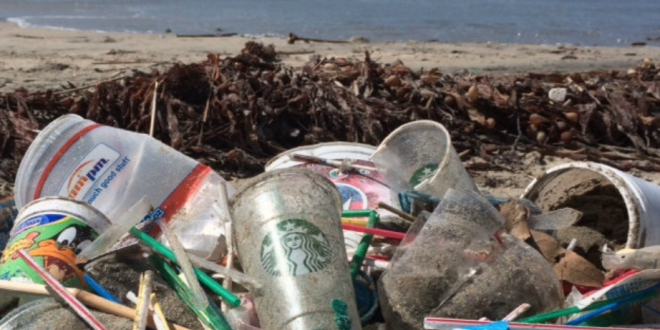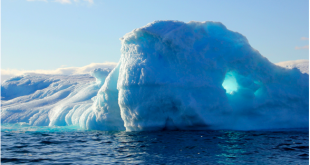by Chris Noll
Plastic straws, for many of us, have become a necessity of life. Whether at a local restaurant or enjoying a refreshing drink, asking for a straw to sip from has become a part of our daily lives. In fact, outside of one resort in Hawaii, National Geographic reports that 800,000 straws were used in a single year (Devorah Lev-tov)! Despite this, few have pondered the impact these useful, “disposable” tools of consumption have on our oceans, forests, and wildlands. Although plastic straws were only created in the early 1960s, it is estimated that the pollution and harm plastic straws create can have severe and permanent effects, causing significant damage and death to ecosystems and wildlife (Jessica A. Knoblauch). Some products in today’s market are biodegradable, allowing the product to naturally decompose, and are made from bamboo or other natural substances. Plastics, on the other hand, are a petroleum product that never truly break down in Earth’s oceans or wildlands, only leading to smaller and smaller pieces of plastic being ingested, and severely injuring the native flora and fauna; additionally, plastics are made with chemicals which can affect human hormone production and other bodily functions (Jessica A. Knoblauch).
Even worse, plastic straws cannot be recycled. Although most straws are created out of a highly recyclable form of plastic, called polypropylene, most recyclers are very particular about which types of this substance they collect. This leaves plastic straws in the dump, or in the ocean (Jessica A. Knoblauch). Even though avoiding straws, which is deemed by some as an “easy target” because it is not they are considered “nonessential,” may seem like a wasted effort, on a larger scale such an avoidance can reduce the amount of pollution and resources we use on a disposable item most of us can live without (Elaine S. Povich). So what can be done to stop this waste? If they cannot be recycled, then what? Ordering drinks without straws or telling the waiter to hold the straw are both great ways to reduce straw usage. If you have sensitive teeth or have a disability and need a straw to sip various beverages, trying reusable straws, such as bamboo or dishwasher-safe metal straws, can be great alternatives to plastic straws and will further reduce your impact on the environment. Although plastic straws have a significant impact on our oceans and wildlands, there are great alternatives which eager, straw-loving consumers can help end plastic straws’ reign over us and our environment.
Sources
https://www.scientificamerican.com/article/plastic-not-so-fantastic/
https://earth911.com/home/food-beverage/recycling-mystery-plastic-straws/
www.eatingutensils.net/history-of-other-eating-utensils/drinking-straws-history/.
https://phys.org/news/2018-07-plastic-straws-resistance.html
https://news.nationalgeographic.com/2017/04/plastic-straws-ocean-trash-environment/
 Tempus Magazine By Students, For Students
Tempus Magazine By Students, For Students 



